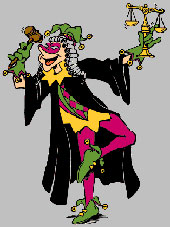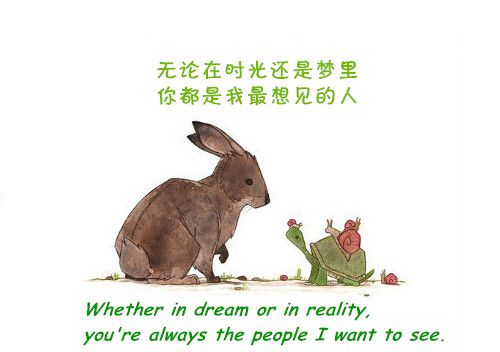|

As it was called years ago, All Fools' Day is observed in many countries around the world. The origin of April Fool's Day remains clouded in obscurity. But what is clear is that the tradition of a day devoted to foolery had ancient roots. As we look back in time, many ancient predecessors of April Fool's Day are found.  A French legendary A French legendary
 The most widespread theory about the origin of April Fool's Day links the Gregorian calendar reform. The most widespread theory about the origin of April Fool's Day links the Gregorian calendar reform.
In 1582 France became the first country to switch from the Julian to the Gregorian calendar. This meant that the beginning of the year was moved from the end of March to January 1. If someone failed to keep up with the change and continued to celebrate the New Year between March 25th and April 1st, various jokes would be played on him. This story might explain why April 1st specifically became the date of the modern holiday.
 Mythological roots Mythological roots
 There have been quite a few attempts to provide mythological explanations for the rise of April Fool's Day. There have been quite a few attempts to provide mythological explanations for the rise of April Fool's Day.
One story dates back to Roman mythology, particularly the myth of Ceres (the Goddess of grain and the harvest) and Proserpina. In Roman mythology Pluto, the God of the Dead, abducted Proserpina and brought her to live with him in the underworld. Proserpina called out to her mother Ceres for help, but Ceres, who could only hear the echo of her daughter's voice, searched in vain for Proserpina. The fruitless search of Ceres for her daughter was commemmorated during the Roman festival of Cerealia and believed by some to have been the mythological antecedent of the fool's errands popular on April 1st.  British folklore linked April Fool's Day to the town of Gotham. According to the legend, it was traditional in the 13th century for any road that the King travelled over to become public property. People in Gotham didn't want to lose their main road and spread a false story to stop the King. A messenger was sent to Gotham after King John learned the people's trick. But when the messenger arrived in Gotham he found the town was full of lunatics who were engaged in foolish activities such as drowning fish or attempting to cage birds in roofless fences. The King fell for the hoax and declared the town too foolish to warrant punishment. And ever since then, April Fool's Day has supposedly commemmorated their trickery. British folklore linked April Fool's Day to the town of Gotham. According to the legend, it was traditional in the 13th century for any road that the King travelled over to become public property. People in Gotham didn't want to lose their main road and spread a false story to stop the King. A messenger was sent to Gotham after King John learned the people's trick. But when the messenger arrived in Gotham he found the town was full of lunatics who were engaged in foolish activities such as drowning fish or attempting to cage birds in roofless fences. The King fell for the hoax and declared the town too foolish to warrant punishment. And ever since then, April Fool's Day has supposedly commemmorated their trickery.
 Anthropological explanations Anthropological explanations
Anthropologists and cultural historians provide their own explanations for the rise of April Fool's Day. According to them, the celebration traces its roots back to festivals marking the Springtime. Spring is the time of year when the weather becomes fickle, as if Nature is playing tricks on man, and festivals occurring during the Spring traditionally mirrored this sense of whimsy and surprise. They often involved temporary inversions of the social order. Normal behavior no longer governed during the brief moment of transition as the old world died and the new cycle of seasons was born. Practical jokes,trickery, and the turning upside down of status expectations were all allowed.
In addition,the linkage between April Foolery and the Springtime is seen in another story that traces the origin of the custom back to the abundance of fish to be found in French streams during early April when the young fish had just hatched. These young fish were easy to fool with a hook and lure. Therefore, the French called them 'Poisson d'Avril' or 'April Fish.' Soon it became customary to fool people on April 1, as a way of celebrating the abundance of foolish fish. Vocabulary:
observe
Ceres: 谷类女神,犹如希腊神化中的Demeter,掌管农业,富饶女神 Proserpina: 普罗塞耳皮娜,丰饶女神的女儿,后被Pluto诱拐成为地狱的女神 Pluto: 普罗托,罗马神话的冥神
Cerealia:农神节,在这一天,人们可以尽情狂欢,奴隶们甚至可以扮演奴隶主的角色统治自己的主人 fool's errands : fruitless mission or undertaking(徒劳无用的工作)
Gotham: 哥谭镇, 英国传说中的愚人村, 同时也是纽约的别名 lunatics: 傻瓜,疯子
fall for: 喜欢,爱上
too foolish to warrant punishment: 因为村子里的人很愚笨,所以可以得到赦免
fickle: capricious(反复无常) : celebrate(庆祝)
Gregorian calendar: 格里高里历法,即现行的阳历,公历,由教皇格列高利十三世于1582年倡导使用,为朱利安历法的改进版 | 

 A French legendary
A French legendary  The most widespread theory about the origin of April Fool's Day links the Gregorian calendar reform.
The most widespread theory about the origin of April Fool's Day links the Gregorian calendar reform.  There have been quite a few attempts to provide mythological explanations for the rise of April Fool's Day.
There have been quite a few attempts to provide mythological explanations for the rise of April Fool's Day.  British folklore linked April Fool's Day to the town of Gotham. According to the legend, it was traditional in the 13th century for any road that the King travelled over to become public property. People in Gotham didn't want to lose their main road and spread a false story to stop the King. A messenger was sent to Gotham after King John learned the people's trick. But when the messenger arrived in Gotham he found the town was full of lunatics who were engaged in foolish activities such as drowning fish or attempting to cage birds in roofless fences. The King fell for the hoax and declared the town too foolish to warrant punishment. And ever since then, April Fool's Day has supposedly commemmorated their trickery.
British folklore linked April Fool's Day to the town of Gotham. According to the legend, it was traditional in the 13th century for any road that the King travelled over to become public property. People in Gotham didn't want to lose their main road and spread a false story to stop the King. A messenger was sent to Gotham after King John learned the people's trick. But when the messenger arrived in Gotham he found the town was full of lunatics who were engaged in foolish activities such as drowning fish or attempting to cage birds in roofless fences. The King fell for the hoax and declared the town too foolish to warrant punishment. And ever since then, April Fool's Day has supposedly commemmorated their trickery. 






